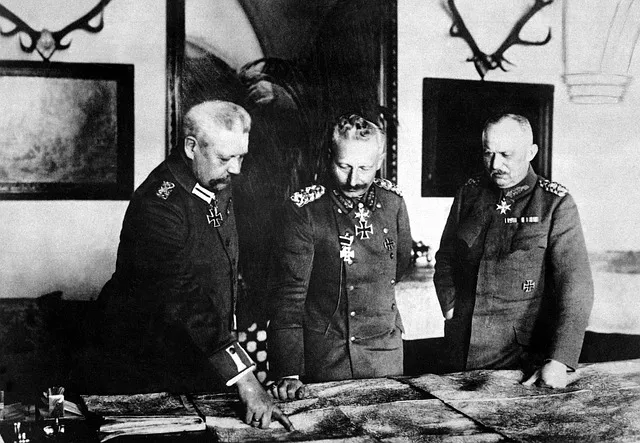Broadmoor Kaiser Counselors offer specialized trauma-informed care, using evidence-based techniques like CBT and stress reduction to help individuals process traumatic experiences. Their approach combines therapy with holistic practices, emphasizing strong therapeutic relationships and communication in safe, supportive environments. Beyond individual counseling, services include workshops, classes, and on-site psychological support for comprehensive recovery.
Trauma can leave profound and lasting effects, but healing is possible with specialized counselors. This comprehensive guide explores understanding trauma, emphasizing the crucial role of these professionals in facilitating recovery. We delve into the unique approach of Broadmoor Kaiser Counselors, their evidence-based techniques, and how their expertise empowers individuals to overcome adversity. Additionally, we provide valuable resources for continuous support post-therapy.
- Understanding Trauma: A Comprehensive Overview
- The Role of Specialized Counselors in Healing
- Broadmoor Kaiser Counselor Approach and Techniques
- Resources and Support for Continuous Recovery
Understanding Trauma: A Comprehensive Overview

Trauma is a profound and often complex experience that can significantly impact an individual’s mental and emotional well-being. It arises from intense or life-threatening situations, such as accidents, violence, or natural disasters, leaving deep psychological scars. Understanding trauma involves recognizing its various forms, including acute and chronic trauma, single incident and complex trauma, and its potential long-term effects on victims.
At Broadmoor Kaiser Counseling, our specialized counselors are trained in trauma-informed care, offering a supportive environment for individuals to process and heal from their traumatic experiences. We believe that everyone deserves accessible and affordable counseling options nearby, especially when facing the challenges of trauma. Our goal is to empower clients by providing evidence-based strategies tailored to their unique needs, helping them navigate their journey towards recovery alongside dedicated trauma-informed care providers, such as those found within Kaiser behavioral health services.
The Role of Specialized Counselors in Healing

Specialized counselors play a pivotal role in helping individuals navigate and overcome trauma. These professionals are trained to provide tailored support, ensuring that each client receives personalized care. At facilities like Broadmoor Kaiser, counselors employ advanced techniques and methodologies to address complex emotional needs. They create safe spaces where clients can express their feelings, process traumatic experiences, and develop effective coping strategies.
Through one-on-one sessions, group therapy, or a combination of both, these counselors guide individuals towards healing. They offer evidence-based practices such as cognitive behavioral therapy (CBT), which helps to reframe negative thoughts and behaviors associated with trauma. Additionally, they facilitate stress reduction techniques, enabling clients to manage their responses to triggering situations. Kaiser behavioral health services prioritize holistic well-being, addressing not only mental health but also the potential physical manifestations of trauma. This comprehensive approach ensures that individuals not only recover from their traumatic experiences but also learn healthy ways to cope and thrive in their daily lives, even if they require substance abuse counseling as part of their healing journey.
Broadmoor Kaiser Counselor Approach and Techniques

The Broadmoor Kaiser Counselor Approach is a specialized methodology employed by trained professionals to assist individuals in overcoming trauma. This innovative technique combines elements of cognitive behavioral therapy with a holistic understanding of the mind and body connection, addressing both the symptoms and underlying causes of traumatic experiences. By facilitating a safe and supportive environment, counselors help clients explore their emotions, process memories, and develop coping strategies tailored to their unique needs.
This approach emphasizes the importance of building strong therapeutic relationships, encouraging open communication, and integrating various modalities such as mindfulness practices and family therapy. Disaster recovery counseling techniques are seamlessly woven into the Broadmoor Kaiser model, empowering individuals to rebuild their lives after traumatic events. Family therapy practitioners within this framework work collaboratively with clients to strengthen support systems and foster resilience, acknowledging that healing often involves collective effort and understanding.
Resources and Support for Continuous Recovery

Overcoming trauma is a journey that requires dedicated support and resources tailored to individual needs. For those seeking specialized care, Broadmoor Kaiser Counselors offer a safe haven where clients can access diverse therapeutic services. These counselors are trained in various modalities to address complex trauma, ensuring personalized treatment plans. From cognitive-behavioral therapy to eye movement desensitization and reprocessing (EMDR), the team employs evidence-based techniques to facilitate healing.
In addition to individual counseling, Broadmoor Kaiser provides resources like stress management workshops and local parenting classes, fostering a holistic approach to well-being. The community aspect of support is enhanced through psychological services on-site, creating an environment where trauma survivors can find comfort and guidance. This comprehensive network ensures that recovery continues long after initial sessions, empowering individuals to lead fulfilling lives free from the burden of traumatic experiences.
Overcoming trauma is a journey that requires specialized support, and Broadmoor Kaiser counselors offer an effective approach. By understanding the profound impact of trauma and employing evidence-based techniques, these professionals facilitate healing and resilience. Through tailored therapy, individuals can navigate their experiences and develop healthy coping mechanisms, ultimately embracing a life free from the shadows of the past. With access to resources and ongoing support, recovery becomes a feasible and transformative process.






